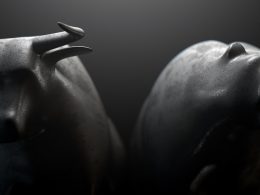Great Investor David Winters, portfolio manager of the top rated Wintergreen Fund, will explain why he is finding numerous investment opportunities around the globe and why investors shouldn’t believe the bearish view that the “cult of equity is dead.”
Consuelo Mack WealthTrack - Originally aired October 5, 2012
CONSUELO MACK: This week on WealthTrack, five star fund manager David Winters takes on the investment crowd and parries and thrusts his way through the stock bears and inflation deniers. Wintergreen Fund’s Great Investor David Winters is next on Consuelo Mack WealthTrack.
Hello and welcome to this edition of WealthTrack. I’m Consuelo Mack. Central bankers are clearly worried about global growth. From the U.S., to Europe, to Asia, we have seen unprecedented levels of easing in recent weeks. By independent research firm ISI Group’s count, there have been more than 250 stimulative policy initiatives announced over the past 13 months. The firm also points out that we are less than 100 days from the famous fiscal cliff in the U.S., when numerous Bush era tax cuts expire and automatic spending cuts take effect if Congress and the White House can’t reach a budget compromise. If they don’t, estimates are that GDP growth could be reduced by as much as 3.5%, sending the economy into recession.
Meanwhile, stocks have rallied strongly this year largely because of all of those central bank actions, which have given some investors confidence that the world will continue to muddle through the challenges of a widespread economic slowdown. Individuals, however, are still not participating in large numbers. Retail investors continue to favor bonds over stocks- a winning move for them until this year, and a trend we’ve been tracking for months.
This week’s guest disagrees with such bearishness and believes investors are missing several attractive opportunities around the world. He is Great Investor David Winters, portfolio manager of the five-star rated Wintergreen Fund, which he has been managing since he launched it in 2005. The go anywhere, invest in anything value-oriented fund has outperformed its category and the markets since its inception. Wintergreen is a sponsor of WealthTrack but David is clearly here on his own merit. I began the interview by asking David about what he considers a major investor misconception, phrased by great bond investor Bill Gross at PIMCO as “the cult of equity is dying.”
DAVID WINTERS: I think it’s wrong. I think the notion that stocks are never going to go up again creates an enormous opportunity for the few of us left who are working on equities and actually do the work, and I think it’s a misconception that’s forced the public even further from the equity market and institutions, and the reality is there’s this enormous disconnect between price and value which creates future opportunities.
CONSUELO MACK: So there is a shift on both the institutional level and the individual level away from stocks and, as you know, the new term for stocks is that it’s the risk asset, and Treasuries are the risk-free asset, another perception which you strongly disagree with.
DAVID WINTERS: Well, you know, people think it’s been such a bad period for 10 years that this is going to be forever like this, and so in that timeframe, Consuelo, rates have come down, and the only way to have made money was, except certain well-selected securities, has been to own bonds. So people now have their money in 20 basis points and 18 basis points securities, you know, Treasury securities. People lose purchasing power on a daily basis. I think inflation is very real. You have food prices going up, fuel prices going up. You need to get your hair done. Prices go up, and if you have your money not growing over time, you get crushed. So here you’ve got the public believing and institutions believing equities are dead. They believe that putting all your money in bonds when rates go up and you have the impact of inflation. We think what’s perceived as a risk-free asset is actually an incredibly risky asset.
CONSUELO MACK: So cash, in fact, and cash equivalents you told me is one of the riskiest assets now. Let me ask you, because if you were to talk to Federal Reserve chairman, Ben Bernanke, he would basically say that inflation is very mild. It’s benign, and it’s under our target rate, and yet, again, another misperception.
DAVID WINTERS: For most individuals, their cost of living is going up, and this circles back to this ‘equities are dead’ fallacy, because if you own the right businesses with a global footprint that grows free cash flow, has a nice yield, those businesses become more valuable over time, and they have the ability not only to raise prices but to sell more units, and so the well-selected equities, which is what we do at Wintergreen Fund to the best of our ability, it protects you from inflation, the erosion of principal which is really, I think, the biggest risk out there.
CONSUELO MACK: So it’s interesting, because you just mentioned that we had come through a decade which is called the lost decade, and so when people look at the market indices, and they’re saying, you know, the S&P and the Dow are below what they were at their height, their peaks from 2007, whatever it was, but when I look at Wintergreen’s results, and you look at individual securities, in fact, that many people haven’t lost money. They’ve made money. So this kind of disconnect again, between the market and individual securities, historically, I mean, how big is the gap as far as you’re concerned?
DAVID WINTERS: I’ve never seen anything like this and, you know, part of it is you have so many people who’ve had a bad experience, and there is relatively few of us who’ve had a good experience so that we remain optimistic, constructive, and believe that you take advantage of this disconnect. There’s companies out there which trade at massive discounts to their asset value that are well run with good management.
CONSUELO MACK: Give us some examples of investing in Wintergreen.
DAVID WINTERS: Well, you know, one that I’m talking about it Canadian Natural Resources.
CONSUELO MACK: A long-time holding of the Wintergreen Fund.
DAVID WINTERS: Right, and in this environment it’s certainly gotten beaten up, but if you look at what recent transactions for oil assets have been and what CNQ trades for, it trades at one third of those recent trades, and the oil’s in Canada. It’s a great country, rule of law, and so there are a number of examples where we can take advantage on behalf of the Wintergreen investors that they can own these assets at a really low price with bright future. That’s the other thing, is that people extrapolate what’s happened, that things will never get better, and we know from our own lives that the country is so much better than it was 20, 30, 40 years ago, and I think the future’s bright. And the other big misconception is that people have repatriated their money home, whether the U.S., to Canada, to Japan, but really the big opportunities are international.
CONSUELO MACK: That’s a very interesting point, because certainly if you talk to a number of other value investors, the theme has been that the U.S., the big brand name U.S. companies are the best value in the globe and, therefore, invest with the big name U.S. companies.
DAVID WINTERS: Well, we think there’s... you know, we’ve actually bought more in the U.S. in the last year or so because the market is in the state it’s in, but there are so many great companies all over the world, whether they’re in Monterrey, Mexico or Zurich or Kuala Lumpur, and I think most investors don’t have the flexibility of thought to be willing to look everywhere, and today we think that, you know, I feel like a kid in a candy store with $100 in my pocket, and my parents aren’t watching.
CONSUELO MACK: That is a great image. I can you see you as a little kid. I have to admit, ever since I started interviewing on WealthTrack, you have had this same kind of optimism about the kind of companies that you’re finding, and one of the things that you always say you’re looking for a trifecta, and that bears... it’s really important for our viewers to understand, you know, what do you mean by a trifecta? What do you look for in the companies that you invest in?
DAVID WINTERS: Well, I’m a value investor, global value investor, and I’m fortunate to know how to do all kinds of things, you know, liquidations, bankruptcies, activism, but what we’ve really learned as time has evolved, that you need three things. One, you need a company with good underlying economics, and hopefully economics that are improving and that again takes the risk out.
CONSUELO MACK: So a good growing business.
DAVID WINTERS: Yes, and then you got to have management who’s focused on all shareholders, not just themselves and that who wants to create value, and the third thing is a low price, and today there’s lots of low prices, and so I think that this is a great time. And I don’t know what the market’s going to do in the short term or securities prices, but if you use the trifecta as a filter and you really get in and do the work, I think you take out the risk, and you create a lot of upside.
CONSUELO MACK: But why are there more opportunities today? I understand the price equation of it, but I mean, looking over your 20 some odd years of investing, you know, why are there more opportunities today, aside from the fact that the market has been down over the last 10 years or whatever? Is there something else going on?
DAVID WINTERS: I think there’s a number of things going on. As we started the conversation, you have the death of equities. People really believe market’s never coming back, that business is never going to grow, that if you plant another crop as a farmer, it’s never going to, you know, and it’s just not true.
CONSUELO MACK: Right, eternal drought.
DAVID WINTERS: It’s just not true, and the reality is most of the companies in the Wintergreen portfolio are doing really well, and you just have less competition.
CONSUELO MACK: So that’s an important point, is the notion that there’s less competition. So in fact, as we see people not only withdrawing from equities but also switching to passive indexes instead of in a way from active managers, has there been a real marked decline in the number of people doing stock analysis? I mean, is that another part of this change in the markets?
DAVID WINTERS: Yeah, I think basically there are fewer people doing the work, and people’s timeframes have been compressed, and they don’t want any price fluctuation, and if you go back to the essentials, you go back to what Benjamin Graham wrote in “The Intelligent Investor” in 1949, it was Mr. Market. Today we say Mr. or Ms. Market, and you take advantage of the fluctuations, but what’s happened, because it’s been so difficult, is people have just fled and so it’s like being a fisherman with lots of hungry fish, and there’s no more fisherman around.
CONSUELO MACK: David, let me ask you about the macro environment, because we are looking at a lot of uncertainty. You know, it just seems like there’s a crisis du jour, whether it’s political or economic, and so how, as a portfolio manager, do you deal with those macro uncertainties?
DAVID WINTERS: Well, you’ve got to I think select what’s really important and also what you can control, and most of it as individuals, we can’t control, but what we can control is how we react, and if we react by saying, “What can I do to find an opportunity in this mess?” that’s, I think, been the key way that we’ve thought about it, and there are a lot of problems in the world, but there’s a lot of good things in the world, and so what we focused on is what’s good and how can we make money for the Wintergreen investors by focusing on these opportunities.
CONSUELO MACK: The companies that you’re investing in, they’re multinational companies. They do business all over the world. I mean, what’s the sense from the managers that you talk to about what their feeling is about the prospects for business globally?
DAVID WINTERS: Well, I think there are certain examples where things are slowing down, yet the well-run companies continue to invest for the future and figure out what they’re going to do when the sun comes up tomorrow morning, and I think a well-run company doesn’t give up or worry about this quarter. They build for tomorrow, and so we’ve tried to find those types of managers who are focused. I give you a little example. The Schindler elevator and escalator company announced that they built their first foreign company, elevator company, building a factory in India. So the Schindler company, they haven’t stopped. They’re getting more orders. They’re busy, and I think ultimately not only are they doing well now, but when things do improve, they will have laid the groundwork to sell more elevators and escalators and more maintenance. So that’s where we’re focused.
CONSUELO MACK: You are so optimistic again, and you seem to be focused where the growth is occurring. One of the major areas, again, that’s in the headlines is China, and China, they’re saying that its growth is slowing. It’s had a housing bubble. What’s your view of China and the opportunities that are still there for companies?
DAVID WINTERS: You know, people worry about China, and many people have never been there. And I was there for a month earlier in the year, and I can’t tell you I know exactly what’s going to happen, but I do know that you’ve got a lot of people, and they all want to look good. It’s just a basic human emotion, and the Chinese are just like everybody else. So you know, that’s why we like Richemont that owns Cartier. You know, we like Swatch that sells low, medium and high-end watches. You know, our largest position is Jardine Matheson, and it’s a Bermuda-based company, but they’re in Hong Kong, and they have great businesses, and they experience that things are slowing down a bit, but they keep investing for the future.
Nestlé. Nestlé just bought or is in the process of buying Pfizer’s infant milk formula business. You know, in China it’s the one child policy. People love their children. They will do anything for their babies, and if they need infant milk formula, Nestlé will sell it to them, and so I think that there’s so much we can’t know and we don’t know, but what we do know and what we focus on at Wintergreen is what’s the knowable, and how can we make money off of it, and we know that as the Chinese get richer, there are certain things that they’re going to do, and so I don’t know about this quarter. I don’t know about the politics, but I do know they want to eat better, and they want to have a good time, and they want to look good.
CONSUELO MACK: So there are some markets that you’re not investing in right now. I mean, you’ve basically avoided Euro zone companies, and you’ve avoided Japanese-based companies. So talk to us about where Wintergreen isn’t right now and why.
DAVID WINTERS: Europe’s in a big mess, and I think that ultimately however this plays out, they’re going to print money just like we have, and you’ve got this construct which ties everybody together at least for now, and it’s going to be like a giant tax on the corporations and the people. So we’ve looked, and we’ve owned a lot of European companies in the past, and we’ll probably own them in the future, but right now we just don’t need to be in the middle of the storm.
And Japan, you know, I love Japan, but they have such issues that they haven’t been able to grapple with, that it’s a tough place to invest and produce returns. So again, the day will probably come when we’ll back in Europe and back in Japan, but right now, there’s other places to invest where the weather is better, and we think there’s more money to be made.
CONSUELO MACK: Let’s talk about some of the places that you are investing, and one of the kind of hallmarks of the Wintergreen Fund’s portfolio is that you are invested, have large positions in a number of tobacco companies, so BAT and Altria and Philip Morris. So tell us about...
DAVID WINTERS: Well, you know, we don’t advocate smoking, but the cigarette companies are huge free cash flow generators, and especially the international ones, BAT and Philip Morris. Philip Morris raised its dividend 10% yesterday. It yields 3.8%. So you get paid to wait and also governments get a lot of tax dollars from these companies, and then there are certain companies like Altria, which is a U.S. company, that’s a complete special situation, because they own 27% of SAB. They have a little wine business. They have a liquidating finance business. Yields five percent, and something eventually is going to happen these excess assets. So we like companies where there’s very little risk, and there’s a lot of upside. And another example would be Berkshire Hathaway, and everybody talks...
CONSUELO MACK: Right, not tobacco, but railroads which you’re a major fan of railroads, right?
DAVID WINTERS: Absolutely, and Berkshire put in a buyback 110% of book, and we added to the position at I think 112% of book, so we have two percent down side really and a lot of upside, and so that’s why, again, we get so excited about the market today. The market, investments, individually well-selected investments, because the risk/reward, because of what’s happened, and the way that people perceive it- equities are dead, bonds are riskless, never invest internationally again- they’re the wrong lessons. So for us at Wintergreen, it’s like, okay, come on.
CONSUELO MACK: The last time I talked to you, we talked about Google. What’s your view on Google right now?
DAVID WINTERS: We still own it and, you know, it’s really a media company, and everybody uses it basically, and they’ve got lots of cash and free cash flow. You know, we don’t love what they did with the high vote- low vote stock, but it’s not an expensive company.
CONSUELO MACK: Not expensive.
DAVID WINTERS: Not expensive, and they have this fabulous business that it doesn’t appear that anybody can ever catch that, and that may change, but for now, as somebody used to invest in newspapers, television, et cetera, I think Google’s the best media company out there.
CONSUELO MACK: Apple. Do you have a view? And I look at Apple, and I see what a huge impact it’s had on the S&P500 index and the NASDAQ and what a spectacular performer it’s been. What’s your view on Apple?
DAVID WINTERS: It’s a great company and, you know, they went from being almost broke to being this huge success, and they make fabulous products, and they have lots of cash, and you can do the analysis.
CONSUELO MACK: A hundred billion dollars in cash.
DAVID WINTERS: And you can strip out the cash and see what you’re paying for it. The problem with an Apple or most of the technology companies, is the product cycle is so short, and I can’t tell you whether the next product is going to be widely received. So if we don’t know, we don’t participate.
CONSUELO MACK: So what’s the best idea in your portfolio now? Do you have one?
DAVID WINTERS: I don't know if it’s the best, but it’s one that I think is- it’s newer, and I think it really fits us- is MasterCard, and why we like MasterCard is every time the card is swiped, they get a little fee, and there’s an enormous amount of transactions every day. Seventy percent of the business is global, and I think it’s 85% of the world still does every transaction in cash.
CONSUELO MACK: Which amazed me when you told me that statistic.
DAVID WINTERS: And even if it’s higher or lower and small transactions in out-of-the-way places, over time people are going to use plastic. It’s just more convenient.
CONSUELO MACK: Cash, what role cash plays in the Wintergreen portfolio? It’s always played an important role. So what are the cash positions now and why are you keeping them wherever they are?
DAVID WINTERS: Cash has come down actually, because we’ve been a buyer. We found a lot to do because of what’s going on.
CONSUELO MACK: And it’s come down since when?
DAVID WINTERS: Oh, I don't know. This year. We probably are 12% in cash, and we’ll probably continue to move things around a little bit, buy and sell. We always want to have cash, because it gives us the ability if something awful happens or if something great becomes available even without anything awful happening, that we can be a buyer, and we don’t have to liquidate something else. We run the money as if it were- and it is- you know, I have essentially all my own money up. My niece has all her own money up and so on, and you know, and my best friends. So we really try to be very, very careful, and you want to be in a position to be a buyer when others are sellers, and there are so many sellers.
CONSUELO MACK: So around 12% now, so in kind of the historical scheme of things, is that midpoint to what you normally are or...?
DAVID WINTERS: Probably mid, yeah, and it could drift lower. I mean, it depends on prices really, and what opportunities those three great misconceptions give us, because there are very few people doing security analysis, thinking long term and investing long term, so we’re in the minority now, which is good.
CONSUELO MACK: Good to be in the minority. So David Winters, thank you so much for joining us from Wintergreen Fund. We really appreciate your being here.
DAVID WINTERS: Great to be here.
CONSUELO MACK: At the end of every WealthTrack, we try to leave you with one suggestion to help you build and protect your wealth over the long term. This week’s Action Point is: think like a contrarian and selectively invest against the crowd. David Winters just mentioned that he is in a minority by doing individual security analysis, and thinking and investing long term. Current investor sentiment is anti-stock and anti-active management so maybe it’s time to re-consider some long-term oriented, actively managed global stock mutual funds for your portfolio. Among Morningstar’s favorites are the ones run by this week’s guest David Winters and recent guest, Matthew McLennan; they are the Wintergreen Fund and First Eagle Global Fund. Both have earned five star ratings for their performance and management.
I hope you can join us next week, our guest will be another Great Investor, but one who has generated his share of controversy by making huge bets in financial stocks and other unloved securities in recent years. A rare interview with Morningstar’s fund manager of the last decade, Fairholme Fund’s Bruce Berkowitz, is in your future. If you would like to watch this program again, please go to our website wealthtrack.com. It will be available as streaming video or as a podcast. You can also see additional interviews with WealthTrack guests in our new and improved WealthTrack Extra feature. And that concludes this edition of WealthTrack. Thank you for watching. Have a great Columbus Day weekend and make the week ahead a profitable and a productive one.











